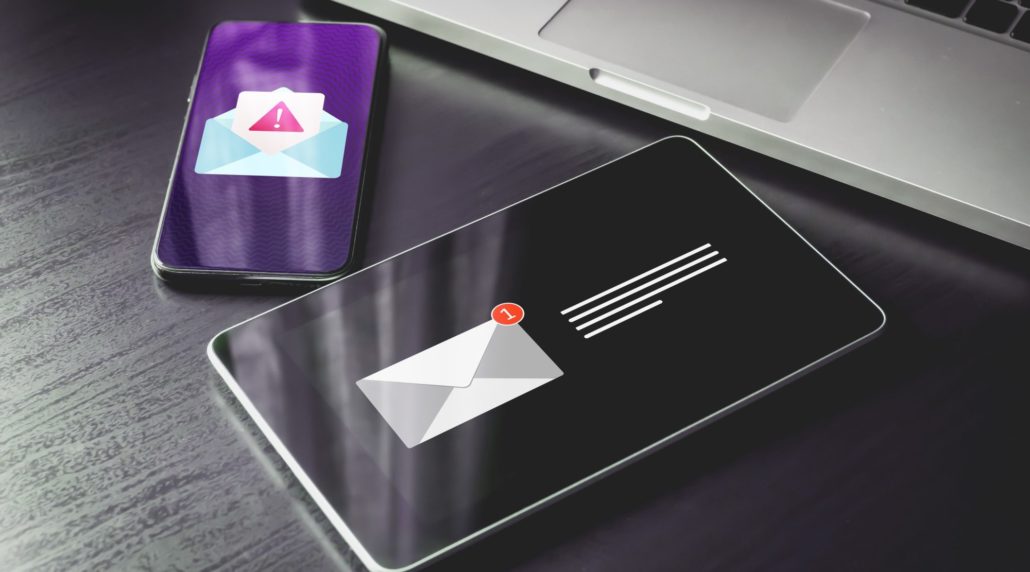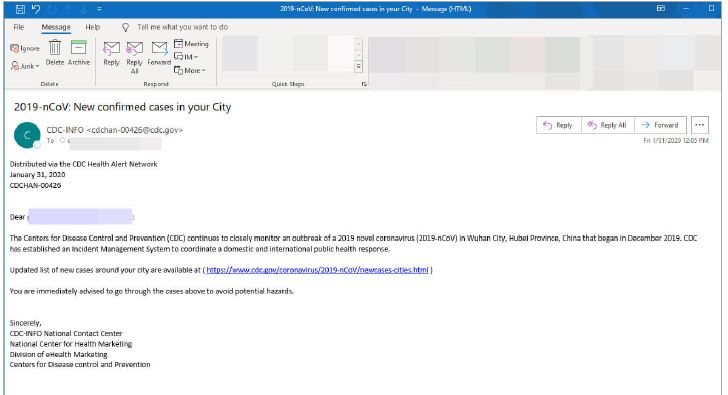More Phishing than Ever
Phishing is also on the rise. According to cybersecurity company FireEye, “espionage actors from China, North Korea, and Russia have been using the pandemic to mask spear-phishing campaigns.” Apparently, convincing documents disguised as information related to the Coronavirus for people in Vietnam, the Philippines, and Taiwan were sent out as spam emails and, when opened, unleashed malware onto the recipient’s computers. Cyberattacks from China also targeted Mongolia using similar tactics: official statistics from the Mongolian government were shared via email but were, in actuality, contaminated with a virus. As with most cyberattacks, these were motivated by the hopes of financial gain. This has increased drastically throughout the world since January.
Cybercriminals use Fear and Concern as a Weapon
According to Salon “hackers are trying to take advantage of the public’s concern about the COVID-19 pandemic to infect users’ computers with malware.” Vital COVID-19-related health statistics from Johns Hopkins University are actually being manipulated and used by Coronavirus hackers to spread “password-stealing malware.” Cybercriminals are taking advantage of data that is intended to inform the public and using it on malicious websites and to possibly send spam emails.
How to Protect Yourself and Your Information
According to elite journalism at Newsweek, “Consumers should also be aware of cybercriminal activity linked to advertisements selling items and kits for combating COVID-19.” Here are some good practices to follow in order to keep cyber hacks at bay:
- Only open attachments within emails from people/organizations you know and trust.
- Mark spam messages as junk so they won’t appear in your inbox.
- Report spam messages to the appropriate people.
- Only download free software from reliable, trustworthy websites.
- Disconnect from the internet when away from your computer.
- Only consult official government sources for information regarding the current health crisis.
- Be aware: if you happen to receive an email regarding COVID-19 and are not aware of who it was sent by or why it’s most likely a phishing scam.
Source: Cybint







